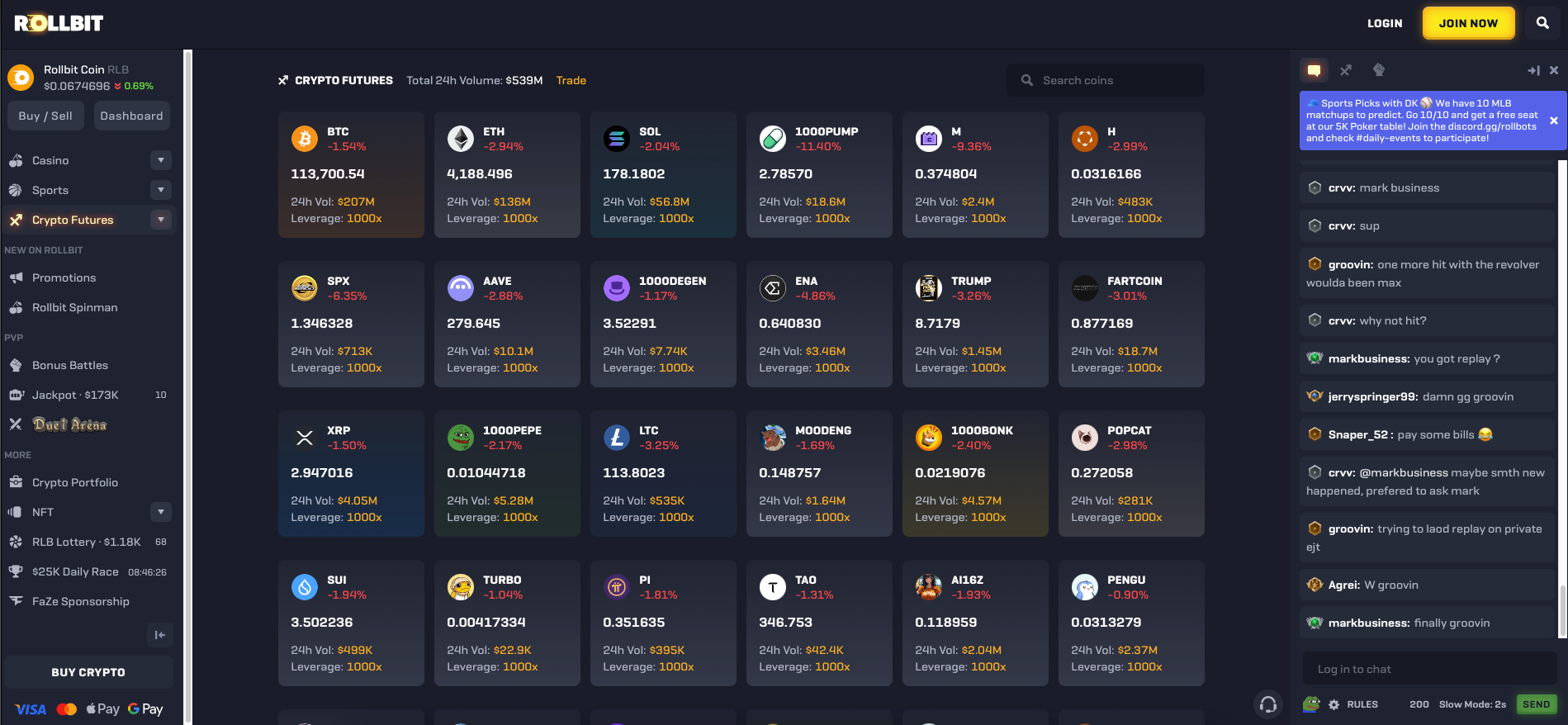Discover our blogs
get the latest updates, tips, and news from the world of skins, gaming, and fair trading.
get the latest updates, tips, and news from the world of skins, gaming, and fair trading.

Crypto gambling continues to captivate enthusiasts by merging digital currencies with the excitement of betting, creating opportunities that traditional methods often can't match. This innovative space allows wagers on casino classics, sports events, and even video game skins using Bitcoin, Ethereum, or other cryptocurrencies. As the industry evolves rapidly, especially with advancements in 2025, readers will discover the fundamentals, key comparisons, emerging trends, and practical advice to navigate it confidently. This article will explain everything about crypto gambling, in a beginner-friendly way.
Crypto gambling essentially means using cryptocurrencies to place bets on various games and outcomes, from roulette spins to esports matches. Platforms in this realm accept digital assets for deposits, enabling seamless participation without relying on conventional banking systems. For instance, a player might load Bitcoin into their account and bet on a virtual poker hand, with winnings paid out in the same currency.

Blockchain technology underpins this system, providing a secure, transparent ledger for all transactions. This setup eliminates intermediaries, speeding up processes and cutting costs. Actually, many users appreciate how it opens doors to global access, bypassing restrictions that fiat currencies sometimes impose. According to CryptoNews, this transparency fosters trust in ways traditional setups struggle to replicate.
Beyond casinos, crypto gambling encompasses skin betting in popular games like CS2, Dota 2, and Rust. Skins, which are cosmetic enhancements for in-game items, carry real-world value and serve as betting chips. Players trade or wager them on platforms integrated with game inventories, adding a layer of community-driven thrill.
The appeal grows from its blend of finance and entertainment, but it also introduces volatility, where crypto prices can influence bankroll values. Still, for those familiar with digital assets, this dynamic adds an extra strategic element.
To have a clear idea, crypto gambling starts with choosing a platform and creating a digital wallet. The users leave crypto in their wallets, such as MetaMask or Exodus, and move it to the address on the site, which can commonly be scanned through a quick QR code. After the funds have been received, betting opportunities open up on categories such as slots, table games, or live dealers.
The provably fair algorithms are notable in this case, permitting players to confirm game outcomes using cryptographic hashes. This aspect makes it random and fair, unlike the darker traditional systems. In the case of skin betting, they use APIs to connect to platforms such as Steam, and they can trade items without the hassles of manual processes.
Withdrawals do the opposite, returning winnings to the individual wallets within a very short time. Security is based on how blockchain is designed, although users are advised to prioritize sites with tighter encryption and auditing. The following is a breakdown of the operational flow in a table:
This streamlined approach contrasts sharply with slower fiat processes, making crypto gambling more efficient overall.
Comparing crypto casinos to traditional ones, one will see a range of differences that become evident when considering why many decide to switch to the digital side. A traditional casino uses fiat money, such as the dollar or euro currencies, that have been administered via banks or cards, which are prone to delays and charges. Crypto casinos, however, process transactions through blockchain, and in many cases, they are fast and cheap, taking less than one hour (varies on chain, usually it can be less than ten minutes, but sometimes more than an hour).

The anonymity factor is also major; the crypto users have more privacy and do not need to provide a large amount of personal information, as opposed to the traditional sites, which require KYC verification. Crypto spaces often have more generous bonuses because overheads are reduced, according to Crypto-Reporter.
Game diversity tends to edge crypto platforms and the presence of exclusive blockchain-based games and integrations. However, the physical casinos or live events may be more professional in the traditional casino. Crypto is accessible everywhere, without geographic borders but different rules apply.
The negative aspect is that the volatility of crypto may influence the value of winnings, which is not a risk with a stable fiat. Nevertheless, where the tech-savvy punters are concerned, speed and innovation are decisive factors. These points can be explained through a comparison table:
This breakdown shows crypto's edge in efficiency, but traditional options hold appeal for reliability seekers.
There are two common models in crypto gambling: centralized and decentralized, with their strong and weak aspects. Centralized systems are similar to businesses that own user assets and games on the servers. They provide higher speeds and more comfortable interfaces, such as websites like Stake or BC.Game as stated in ValueTheMarkets.
In contrast, decentralized models are executed with the help of a blockchain network on the basis of smart contracts. They are not controlled by a single entity, which increases transparency and minimizes the chances of manipulation. Other platforms built on Ethereum encourage peer-to-peer betting, with outcomes that are automated.

Decentralized arrangements, however, have the disadvantage of higher gas cost and slow networks in case of congestion. The convenient ones, centralized, imply trust of the entity to operate, and may be subjected to hacks. BlockchainReporter suggests that decentralized alternatives have become popular out of fairness.
The decision has to be based on preferences: fast versus independent. The differences are in a table:
This variety lets users pick models aligning with their comfort levels.
Esports skin betting is an ambitious fragment of crypto gambling, in which gamers bet in-game skins of games such as CS2, Dota 2, and Rust. These skins have a value in places such as Steam or third-party marketplaces, which practice betting on matches or on random events.
Take CS2, for instance, where fan favorite knife skins could be wagered on professional tournament winners,and add the fandom to the possibility of returns. Dota 2 is used to place bets on sets of heroes during tournaments, such as The International, whereas Rust is directed towards bets on survival items in roulette-style games.
Crypto enables this with fast, frictionless trades that are not subject to borders. Platforms will have built-in wallets to deposit without having to transact any further and integrity will be established by provably fair mechanics. According to CoinDesk, this market has reached new heights, which integrates game economics with blockchain.
To start with, it is advisable to connect game accounts safely and place small bets. A bit of strategy is introduced by the volatility in the price of skin, yet the thrill of viewing a live match with a stake is not lost, prompting the participants to remain glued.
Crypto gambling boasts numerous benefits that attract a growing audience. Foremost, transaction speeds outpace traditional methods, with deposits confirming rapidly. Lower fees mean more funds for play, and anonymity protects user data.
Provably fair tech builds confidence, verifiable by anyone. Global reach bypasses banking restrictions, ideal for international users. Bonuses, often in crypto, provide extra value, and integration with NFTs or metaverses adds novelty.
Yet, advantages come with caveats, like price swings, but hedging strategies can mitigate them. Overall, these perks make it a compelling choice.
Risks are an inevitable part of the discussion of crypto gambling. The dangers of security threats are high unless platforms have security safeguards, making the choice of audited sites an important factor. The risks of addiction resemble classic gambling, and restrictions are essential.
Winnings can be literally melted by volatility, and fraudulent sites victimize users who are unaware of relevant risks. Regulations are better but they are patchy and may be facing legal problems. Gambling Commission resources highlight responsible practices that can be applied.
Education, safe wallets, and self-monitoring tools offered by many platforms are a part of mitigation.
In 2025, crypto gambling is under tighter regulations, with governments raising concerns about the growth of the sector. State law in the US differs, with some states legally allowing it in laws governing gambling, whereas it is prohibited in others, as outlined in Deuces Cracked. Tax implication means that winnings should be reported to the IRS as income.
In the UK, as well as Malta, they have licensing that makes everything fair. EU advocates harmonized standards, and Asia reveals a mixed response. CoinCub recommends inspecting local regulations and operating on licensed platforms to stay compliant.
New legislation centers on AML and KYC, seeking a balance between innovation and protection. Players are advised to refer to updates made by entities such as the IRS to know about the taxes.
Looking ahead, 2025 trends include no-KYC casinos prioritizing privacy, as highlighted in GlobeNewswire. AI enhances personalization, predicting preferences for tailored experiences.
VR and AR integrate for immersive casinos, while esports betting surges with major events. Modular systems allow customizable platforms, and blockchain gaming merges play-to-earn with gambling.
Regulation evolves, with more countries formalizing rules, per ValueTheMarkets. Crypto volatility influences strategies, but stablecoins offer stability. These developments promise an exciting future, blending tech with entertainment.
Crypto gambling offers thrilling bets on CS2 skins or casino games, but smart prep ensures a smooth start. Here’s a concise guide to dive in securely.
Start by researching platforms. Reputable sites, reviewed on fairness.gg, like Skincade or Rollbit, should have licensing, provably fair systems, and solid user feedback. Check forums or X posts for real insights on withdrawals or bonuses.
Next, acquire crypto via exchanges like Coinbase for beginners or Binance for variety. Buy Bitcoin, Ethereum, or stablecoins like USDT, then transfer to a secure wallet—MetaMask for Ethereum, Exodus for multi-coin, or Ledger for top security. Always verify wallet addresses to avoid losses.
Test platforms with demo modes for slots or poker, starting with small deposits like 0.001 BTC. Set a budget and use tools like deposit caps, found on sites like Rollbit. For skin betting on CS2 or Rust, link Steam accounts with 2FA enabled.
Tap into communities on Reddit or Discord for tips, but verify advice. Seasonal events like Dota 2’s The International boost betting with special markets. NFT bets are also rising. Lastly, make sure to check local laws on CoinCub to stay compliant, as regulations vary. The Gambling Commission offers responsible gaming tips.
Crypto gambling redefines betting through innovation, offering speed, privacy, and excitement across models and games. By comparing to traditional setups, understanding regulations, and following trends, participants can enjoy it responsibly. Explore more at fairness.gg's crypto page for ongoing insights.